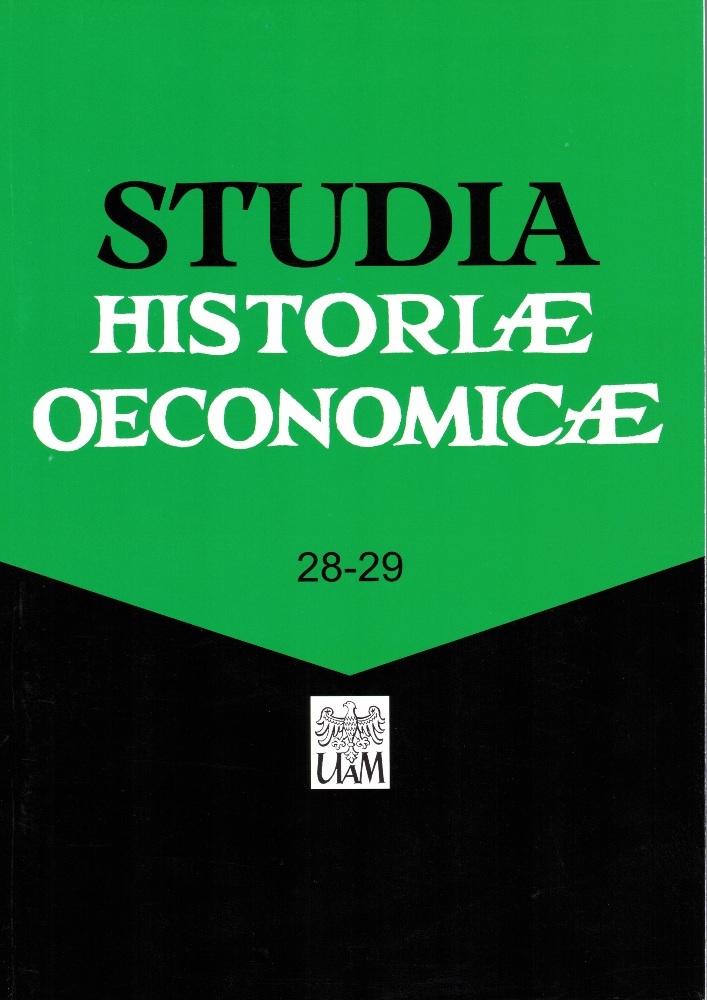Abstract
In the authors' contention the category of (landed) property includes values, social-cultural meanings and social and political power relationships. Privately owned farms were eliminated in Soviet type regimes by the means of state intervention and terror since they obstructed a program of forced industrialisation and exercising power. Collectivisation became a staggering, collective event of social history that transformed structures. The practice of eliminating private forms resulted in many respects in a particular dynamics and an independent process with its own internal logic. Subsequently, this laid the foundations for the Hungarian model of agriculture where the insistence on land was replaced by concerns for earning in cash. These conditions determined the atmosphere of decollectivisation, as well. Those persons compensated who after 1992 obtained actual landed property, were unable or unwilling to work in agriculture since they were uncertain of their skills or the profitability of production in the conditions of the new market economy.
References
Bögre, Zs. (2000) ‘Az egyház és a civil társadalom szerepe a falusi térségekben’, in Kovács, T. (ed.) Integrált vidékfejlesztés. V. Falukonferencia. Budapest: MTA RKK.
Bögre, Zs. (2004) Vallásosság és identitás. Élettörténetek a diktatúrában (1948–1964). Budapest–Pécs: Dialóg Campus.
Bourdieu, P. (2002) ‘A „szovjet” változat és a politikai tőke’, in Bourdieu, P. (ed.) Agyakorlati észjárás. A társadalmi cselekvés elméletéről. Budapest: Napvilág, pp. 25–29.
Buday-Sántha, A. (2001) Agrárpolitika – Vidékpolitika. Budapest–Pécs: Dialóg Campus.
Burgerné, G.A. (2002) A mezőgazdasági földtulajdon és földbérlet. Budapest: Akadémiai.
Erdmann, Gy. (1992) Begyűjtés, beszolgáltatás Magyarországon 1945–1956. Gyula: Tevan.
Estók, J. et al. (eds) (2003) Agrárvilág Magyarországon 1848–2002. Budapest: Argumentum.
Fulbrook, M. (ed.) (2001) Europe since 1945. Oxford: Oxford University Press. DOI: https://doi.org/10.1093/oso/9780198731795.001.0001
Goffman, E. (1961) ‘Role Distance’, in Encounters. New York: The Bobbs-Merrill Company, pp. 74–134.
Granberg, L., Kovách, I. and Tovey, H. (eds) (2001) Europe’s Green Ring. Aldershot:Ashgate.
Habuda, M. et al. (eds) (1998) A Magyar Dolgozók Pártja határozatai 1948–1956.Budapest: Napvilág.
Honvári, J. (1997) ‘Magyarország gazdasági fejlődése a II. világháború után (1945–1958)’, in Honvári, J. (ed.) Magyarország gazdaságtörténete a honfoglalástól a 20. század közepéig. Budapest: Aula, pp. 427−576.
Iordachi, C. and Bauerkämper, A. (eds) (2014) The Collectivisation of Agriculture in Communist Eastern Europe. Comparison and Entanglements from the 1930s to the 1980s. Budapest: Central European University Press. DOI: https://doi.org/10.1515/9789633860489
Kaelble, H. (2007) Sozialgeschichte Europas 1945 bis zur Gegenwart. München: Beck.
Kávási, K. (1991) Kuláklista. Budapest: Agóra.
Kovács, J.Ö. (2008) ‘„Ekkora gyűlölet még nem volt a falunkban, mint most”. Szövegek és kommentárok az erőszakos kollektivizálás befejező hullámáról’, Századvég, 1, pp. 37–69.
Kovács, J.Ö. (2009a) ‘A kollektivizálást kampány „szocreál” kontextusai Magyarországon’, Aetas, 4, pp. 32–46.
Kovács, J.Ö. (2009b) ‘„Sűrített népnevelő”. A kollektivizálás tapasztalattörténetei (1958–1959)’, Korall, no. 36 (July), pp. 31–54.
Kovács, T. (2010) A parasztigazdálkodás és társadalom átalakulása. Budapest: L’Harmattan.
Lindenberger, T. (1999) ‘Die Diktatur der Grenzen’, in Lindenberger, T. (ed.) Herrschaft und Eigen Sinn in der Diktatur. Studien zur Gesellschaftsgeschichte der DDR.Köln: Böhlau, pp. 19–31.
Mezey, B. (ed.) (1996) Magyar jogtörténet. Budapest: Osiris.
Pető, I. and Szakács, S. (1985) A hazai gazdaság négy évtizedének története. 1945–1985. Vol. 1: A hazai gazdaság négy évtizedének története. 1945–1985.
Rees, E.A. (2008) ‘The Sovietization of Eastern Europe’, in Apor, B., Apor, P. and Rees, E.A. (eds) The Sovietization of Eastern Europe. New Perspectives on the Postwar Period. Washington, DC: New Academia Publishing, pp. 1–27.
Romány, P. (1998) ‘Az Agrárpolitikai Tézisektől a Nemzeti Agrárprogramig 1957–1997’, in Gunst, P. (ed.) A magyar agrártársadalom a jobbágyság felszabadításától napjainkig. Budapest: Napvilág.
Siegrist, H. and Sugarmann, D. (eds) (1999) Eigentum im internationalen Vergleich (18.–20. Jahrhundert). Göttingen: Vandenhoeck & Ruprecht. DOI: https://doi.org/10.13109/9783666357930
Szakács, S. (1998) ‘A földreformtól a kollektivizálásig 1945–1956’, in Gunst, P. (ed.) A magyar agrártársadalom a jobbágyság felszabadulásától napjainkig. Budapest: Napvilág, pp. 287–295.
Tanka, E. [1999] Föld és elsajátítás. Sorskérdések földviszonyaink múltjában és jelenében. Budapest: Agroinform.
Thelen, T. (2003) Privatisierung und soziale Ungleichheit in der osteuropäischen Landwirtschaft. Zwei Fallstudien aus Ungarn und Rumänien. Frankfurt am Main–New York: Campus.
Therborn, G. (1995) European Modernity and Beyond. The Trajectory of European Societies, 1945–2000. Thousand Oaks, New Delhi: SAGE Publications. DOI: https://doi.org/10.4135/9781446222317
Tomka, B. (2009) Európa társadalomtörténete a 20. században. Budapest: Osiris.
Trencsényi, B. and Apor, P. (2007) ‘Fine-Tuning the Polyphonic Past. Hungarian Historical Writing in the 1990s’, in Antohi, S., Trencsényi, B. and Apor, P. (eds) DOI: https://doi.org/10.1515/9786155211294-002
Narratives Unbound. Historical Studies in Post-Communist Eastern Europe. Budapest: Central European University Press, pp. 1–99.
Valuch, T. (2001) Magyarország társadalomtörténete a XX. század második felében. Budapest: Osiris.
Varga, Zs. (2003) ‘Az agrárium 1945-től napjainkig’, in Estók, J. et al. (eds) Agrárvilág Magyarországon 1848–2002. Budapest: Argumentum, pp. 261–339.
Varga, Zs. (2008) ‘„Kényszeríteni kell a parasztot...” (Hatalom és agrártársadalom az 1950-es években)’, in Szederjesi, C. (ed.) Megtorlások évszázada. Politikai terror és erőszak a huszadik századi Magyarországon. Salgótarján–Budapest: NML etc., pp. 53–65.
Verdery, K. (2003) The Vanishing Hectare. Property and Value in Postsocialist Transylvania. Ithaca, NY: Cornell University Press. DOI: https://doi.org/10.7591/9781501717253
Weber, M. (1978) Economy and Society. An Outline of Interpretive Sociology. Edited by
Roth, G. and Wittich, C. Translated by Fischoff, E. Berkeley: University of California Press.
MOL – Magyar Országos Levéltár, Budapest - sign. MOL XIX-B-14. ORFK 387.d. 28 January 1961; MOL M-KS-276.93,115 (27 August 1949); MOL M-KS-276. 93, 147 (25 March 1949); MOL M-KS-288. 28.1959.9 (17 August 1959 and 27 May 1959)
Füzes, M. (ed.) (2002) Kitaszítottak II. Dokumentumok a hortobágyi zárt munkatáborokról, 1950–1960. Budapest: Alterra.
Hantó, Zs. et al. (eds) (2001) Kitaszítottak I. „Magukkal fogjuk megzsírozni a földet”. Budapest: Alterra.
Magyar Közlöny 1991 No 77, 1991. évi XXV. törvény a tulajdonviszonyok rendezése érdekében, az állam által az állampolgárok tulajdonában igazságtalanul okozott károk részleges kárpótlásáról.
1949. évi népszámlálás. Part 3: Részletes mezőgazdasági eredmények (1950) Budapest: Központi Statisztikai Hivatal.
License
Copyright (c) 2011 Teréz Kovács, József Ö. Kovács

This work is licensed under a Creative Commons Attribution-ShareAlike 4.0 International License.




